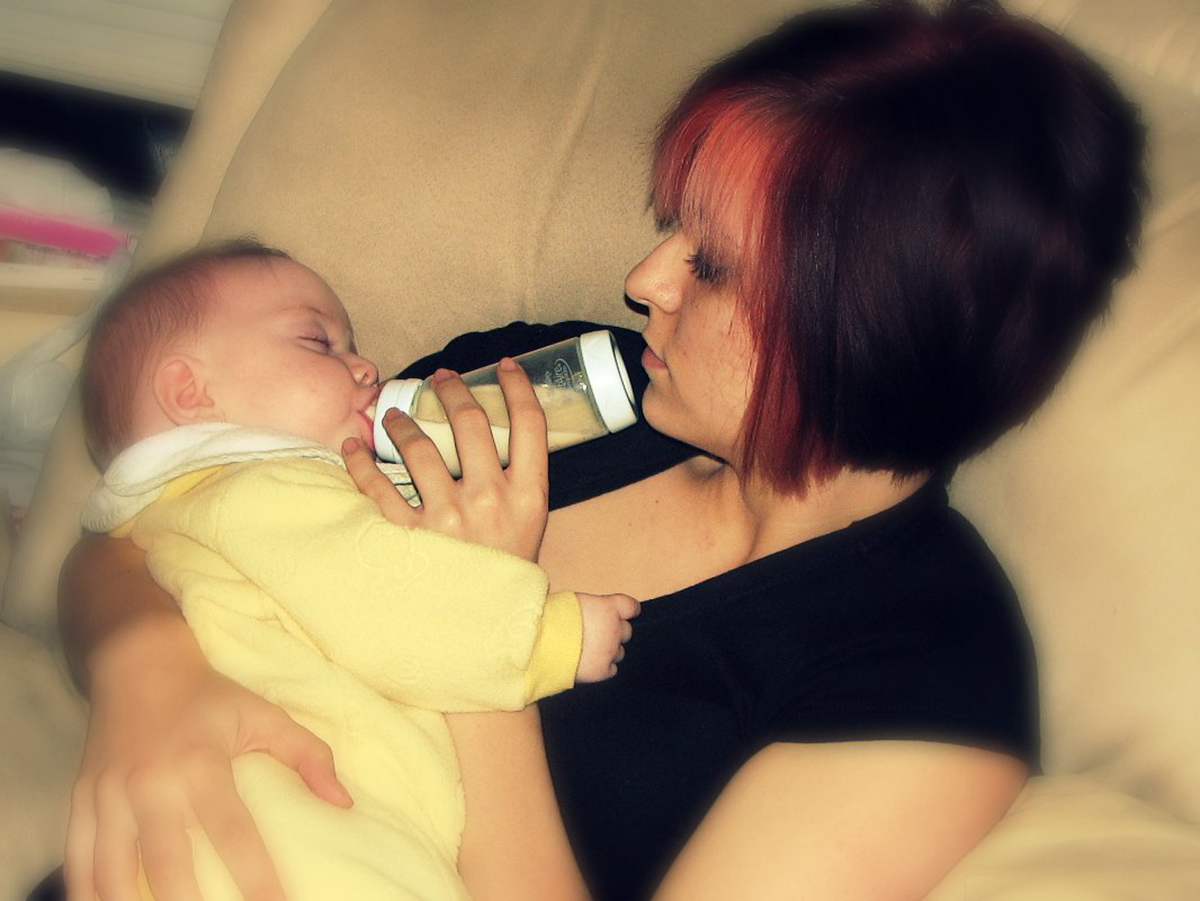Table of Contents
The study authors write: "In this population-based, prospective birth cohort, breastfeeding duration was positively and linearly associated with performance in intelligence tests, educational attainment, and income at age 30 years. The magnitude of the identified effects was important in public health terms. The difference in IQ between the most extreme groups was nearly four points, or about a third of a standard deviation; the increase of 0·9 years in education corresponds to roughly a quarter of a standard deviation, and the difference in income of R$341 was equivalent to about a third of average income."

What Did The Study Actually Show?
A graph looking at breastfeeding duration, family income at birth, and IQ produced by the research team shows that breastfeeding for longer than a year had no impact on the highest-income babies, as compared to high-income babies who were breastfeed between six and 11 months. The same held true for babies from low-income families. Meanwhile, the data shows babies from middle-income families did benefit more if they were breastfed for longer than 12 months, rather than between six and 11 months.
Breastfeeding for less than a month was shown not to impact IQ in any way. While the group of babies from higher-income families ended up with a significantly higher IQ than those from low-income families, there was no difference between the "never breastfed" and "breastfed for less than a month" groups, regardless of income level.
In higher-income countries such as the United States, more educated mothers with higher incomes are more likely to breastfeed than low-income mothers. The authors of this study point out that no such correlation existed in Brazil at the time the study started. Those mothers with the highest income levels were as likely to breastfeed as those with the lowest income levels. Interestingly, however, the poorest mothers with the lowest levels of formal education were most likely to breastfeed for longer than a year, and those women also tended to have more African ancestry than the other groups.
The study authors pointed out:
They noted that other studies found that breastfeeding led to a higher IQ even after controlling for home environment.
Interestingly enough, however, the authors did not look at another very important factor likely to predict IQ in children: the IQ of the parents. Considering the fact that previous research shows a high parent-child IQ correlation, this can certainly be seen as a major flaw.
What's more, 41 percent of the original participants were not included in the follow-up. If they had been, a different picture may have emerged.
What Can We Learn From This Data?
What can you take away from this particular study? Most importantly, you can conclude that your own education and income are likely to positively impact your children's IQ scores, educational attainments, and future income. You can indeed also conclude that breastfeeding for at least six months can make a small but measurable contribution to your children's IQ (3.75 points on average).
Well, let's put it this way. Breastfeeding certainly offers quite a few benefits. It's also, if you don't suffer complications, a very convenient and cheap way to feed your baby. However, your income, education, own IQ and the stimulation and relationship you offer your children are all much more likely to impact how successful they will be in life than how long you breastfeed and whether you breastfeed at all.
See Also: Breastfeeding In Public: Your Rights
- Photo courtesy of c r z via Flickr: www.flickr.com/photos/aurimas_m/3802740128
- Photo courtesy of Diamond Farrah via Flickr: www.flickr.com/photos/msdiamondfarah/3278292608


Your thoughts on this